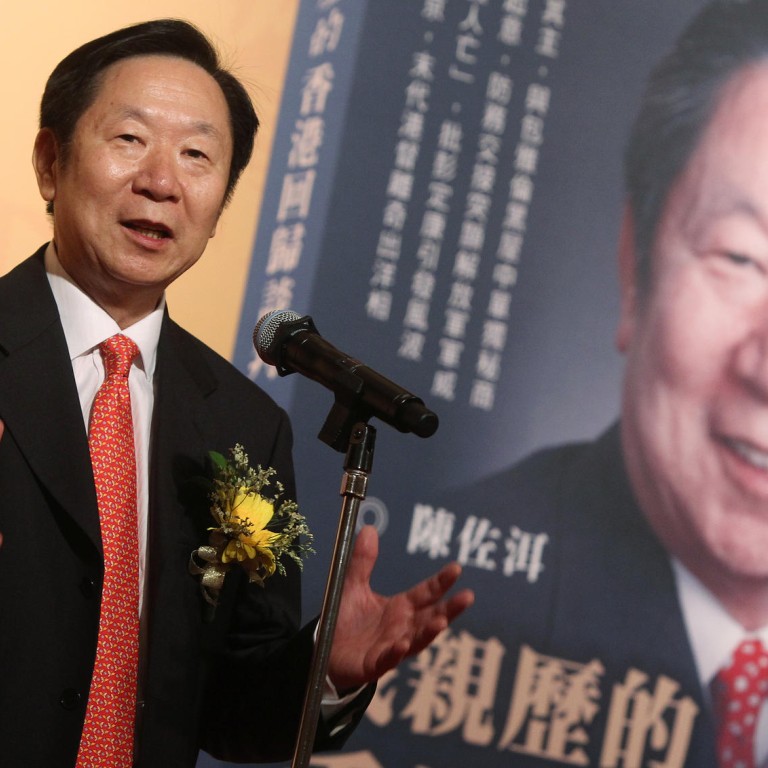
Hongkongers not after full autonomy, academics say
Professors argue former Beijing officials are mistaking anti-mainland feelings for desire for full autonomy, but agree tensions are rising
Former senior mainland officials overreacted by equating anti-mainland feelings in Hong Kong with pro-independence sentiment, according to two local academics and a veteran China-watcher.
Professor Chan Kin-man, Eric Cheung Tat-ming and Ching Cheong were responding to remarks by Lu Ping , the former director of the State Council's Hong Kong and Macau Affairs Office and Chen Zuoer, a former deputy in the office, that pro-independence, advocated by "sheer morons", was "spreading like a virus".
The three said the central government should lead a reconciliatory approach or risk the loss of Hong Kong's uniqueness, and that the local government should share the blame.
Chan, a sociologist at Chinese University, said such rhetoric from two prominent figures reflected growing tension between "one country" and "two systems", the two prongs of the SAR's founding principle.
But he said Lu and Chen (pictured) were being too "sensitive" in equating the sentiments with "pro-independence".
"Hongkongers are clear-headed. We know that we cannot be independent … it was just a sense of localism and [eagerness] to defend our cultures and values," Chan said.
Ching said the officials should ask themselves why such sentiments were surfacing now, 15 years after the handover.
Chen said on Wednesday that "the rise of a pro-independence force in Hong Kong is spreading like a virus".
Quoting earlier comments by Lu, he said this must be dealt with seriously,
Lu said in a letter to the on October 12 that "these guys who advocate for Hong Kong independence are sheer morons. Deprived of support from the mainland, Hong Kong will be a dead city."
Chen had earlier described the display of British flags at protests as "heartbreaking".
On the same day as Chen's remarks, retiring judge Mr Justice Kemal Bokhary issued a veiled attack on forces he suggested were trying to deprive Hong Kong of its independent judiciary, saying clouds heralding a "storm of unprecedented ferocity" were gathering over the rule of law.
Chan said that to ease discontent about the city's relationship with the mainland, Beijing must allow it the high degree of autonomy promised in the Basic Law.
"The central government must genuinely grant more powers to Hong Kong, because Hongkongers used to think Beijing is only in charge of the city's defence and diplomacy, but in recent years, it has seemed [to be intervening] in constitutional, and even educational matters."
Cheung, an assistant professor of law at the University of Hong Kong, said the local administration had a role to play, such as explaining to mainland officials the belief in the rule of law. "I cannot see a rise of pro-independence sentiment in Hong Kong," he said. "But what Bokhary mentioned was true - there are tensions between Hong Kong and the mainland … and those in authority in Hong Kong are not defending our beliefs."
Wang Guangya , the current director of the Hong Kong and Macau Affairs Office, took a conciliatory approach in an article in yesterday, saying he believed people in Hong Kong and Macau identified more and more with the country, amid growing friendship with mainlanders.

